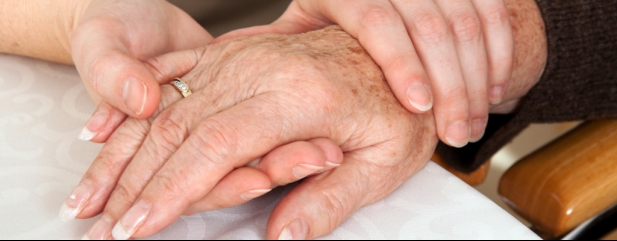Archived article
Please note that tax, investment, pension and ISA rules can change and the information and any views contained in this article may now be inaccurate.
What happens to your personal pension when you die?

The rules on how you can pass on your defined contribution pension scheme funds when you die changed in April 2015. They are now very generous and there is lots of flexibility in terms of both who can receive your unused pension fund, and how they can take the money.
WHO CAN I LEAVE MY PENSION TO?
In simple terms you can leave your pension to whoever you like. Mostly commonly this will be your spouse, partner, or child, but could also include wider family members and even close friends. You can also leave funds to a trust or to a charity.
Whoever receives your funds are called your beneficiaries. You don’t have to leave your pension all to one person, you can split it between beneficiaries if appropriate, for example between your children.
HOW CAN MY BENEFICIARIES TAKE THE BENEFITS?
Your unused pension fund can be paid out as a lump sum or used to provide an income. If your pension fund goes to an entity rather than a person, e.g. a trust or a charity, then they can only receive the benefits as a one-off lump sum payment.
A defined contribution pension is also known as a personal pension or a SIPP (self-invested personal pension)
For individual beneficiaries to have the income option, they need to be either what is called a ‘dependant’ or a ‘nominee’.
Dependants and nominees have the choice of either taking the death benefits as a lump sum payment, using the funds to purchase an annuity, or leaving them invested within a pension as flexi-access drawdown, from which they can take income as and when they need it.
The dependant or nominee will choose how they take the funds, you cannot control this.
WHO ARE MY DEPENDANTS?
Your spouse or civil partner will always be classed as a dependant, as well as someone in a financial relationship of mutual dependence. This could include a co-habiting partner
If you have a child under the age of 23, they will also be classed as a dependant, as well as older children if they are physically or mentally impaired.
If a child inherits your pension, then their parent or legal guardian will manage it until they turn 18. Withdrawals can be made for the benefit of the child, for example to pay school fees.
WHO ARE MY NOMINEES?
A nominee is any individual you nominate who is not a dependant. Most commonly this would be an adult child or grandchild, but a nominee does not have to be a family member.
If you were to die without making any nominations and you had no dependants at the time of your death, then the pension scheme administrator can make a nomination as appropriate.
HOW DO I NOMINATE MY BENEFICIARIES?
When you join a new pension scheme you should have been asked who you want to receive your benefits on your death.
You can also change your nomination at any time. This is especially important if your circumstances change, for example if you get married or divorced, but it is good practice to review your nominations on a regular basis.
Some platforms allow you to update your nominations online.
Other providers may have a form to update nominations, otherwise you can write to them to give your instructions. Just make sure you get an acknowledgement so you know your instructions have been received.
HOW ARE DEATH BENEFITS TAXED?
If you die before your 75th birthday then your beneficiaries can usually receive the death benefits tax free. There are some exceptions – see the sections below regarding inheritance tax and the lifetime allowance.
For the benefits to be free of income tax the scheme administrator must distribute the funds within two years of when they were informed of your death.
For lump sum payments this means the payment must have been made within this two-year window.
If a dependant or nominee has elected to take the death benefits as flexi-access drawdown or as an annuity then it means the funds need to have been moved into a drawdown arrangement in their own name, or the annuity purchased within the two-year window.
Once funds are in the drawdown arrangement there is no time limit as to when they can take benefits – they can leave the funds invested to grow for as long as they like and just take income as and when they need it.
If you are 75 or older when you die, or if you die younger but your death benefits are not distributed within the two-year window, then the death benefits will be subject to income tax.
If your beneficiaries choose to take a lump sum, then this will be added to their income for the year and tax charged at the appropriate rate. If they use the funds for flexi-access drawdown, when they come to take income it will be subject to income tax under PAYE.
Any lump sum payments made to an entity rather than an individual will be subject to the special lump sum death benefits tax charge of 45%. Most commonly this will apply when payments are made to trusts. There are exceptions for payments to charities if certain conditions are met.
WILL THERE BE INHERITANCE TAX TO PAY?
If you nominate beneficiaries and that nomination is binding on the scheme administrator (i.e. they must follow your instructions) then your pension will be included in your estate and inheritance tax may apply.
For this reason, most personal pensions scheme rules do not allow binding nominations. This means that your death benefits are not usually included in your estate so inheritance tax will not apply.
In most cases the scheme administrator will follow your wishes – they would need to have good reason not to – but they must have the ability to exercise discretion.
Inheritance tax may apply even where the scheme administrator has discretion if you increase contributions to your pension in the period before your death in the knowledge of ill-health, or if you transfer between pensions in the two years prior to death when you are in ill-health.
ARE DEATH BENEFITS TESTED AGAINST THE LIFETIME ALLOWANCE?
If you are over 75 or have already designated all your funds into drawdown in your lifetime, they are not tested again when you die.
However, if you have funds you have not accessed and you die before 75 then these funds are tested against your remaining lifetime allowance on death.
If you have any lifetime allowance protection, then this can be used to reduce or eliminate any lifetime allowance charge that may be applicable.
Any lifetime allowance charge that arises will be payable by your beneficiaries, and they can use the inherited funds to pay it. It is worth noting that any funds they inherit are not tested against their own lifetime allowance.
WHAT HAPPENS WHEN MY BENEFICIARY DIES?
If your beneficiary chooses flexi-access drawdown and there are funds left when they die, those funds can be passed on again. However, it will be up to your beneficiary to nominate who they want the funds to go to on their death, this is not something you can determine.
WHAT ABOUT DEFINED BENEFIT OR FINAL SALARY PENSION SCHEMES?
Defined benefit pensions usually only allow dependants to receive a pension after the member dies. Some schemes will pay out a lump sum if you die before accessing your pension. If you have a defined benefit pension you should check with the scheme what payments can be made.
CAN I LEAVE MY PENSION TO CHARITY?
The short answer is yes, however if you have dependants you should make sure they are looked after first.
A ‘Charity Lump Sum Death Benefit’ can only be paid where you have no dependants and you have nominated your chosen charity before you die.
If the payment qualifies then there is no tax to pay on the lump sum when it goes to the charity – even if you die after the age of 75. If you die before age 75 then the lump sum is not tested against your lifetime allowance.
If you do have dependants, it doesn’t mean that you can’t leave your pension to charity, it just means it won’t qualify for the tax exemptions.
In practice the scheme administrator would want to make sure there was adequate provision for any dependants before they would exclude them from receiving your pension.
In most circumstances it may be more practical to consider gifts to charity where you have no dependants.
Important information:
These articles are provided by Shares magazine which is published by AJ Bell Media, a part of AJ Bell. Shares is not written by AJ Bell.
Shares is provided for your general information and use and is not a personal recommendation to invest. It is not intended to be relied upon by you in making or not making any investment decisions. The investments referred to in these articles will not be suitable for all investors. If in doubt please seek appropriate independent financial advice.
Investors acting on the information in these articles do so at their own risk and AJ Bell Media and its staff do not accept liability for losses suffered by investors as a result of their investment decisions.
Issue contents
Danni Hewson
Editor's View
Feature
Great Ideas
Investment Trusts
News
- BT could go down a different path for its sports arm
- China crackdown on US listings to benefit Hong Kong Stock Exchange
- Stock markets stage full recovery after Omicron fears
- Thungela plots bumper dividend despite coal price retreat
- Stocks relevant to efforts to licence vaping for medical use
- New listing rules aim to bring more innovative companies to London

 magazine
magazine









